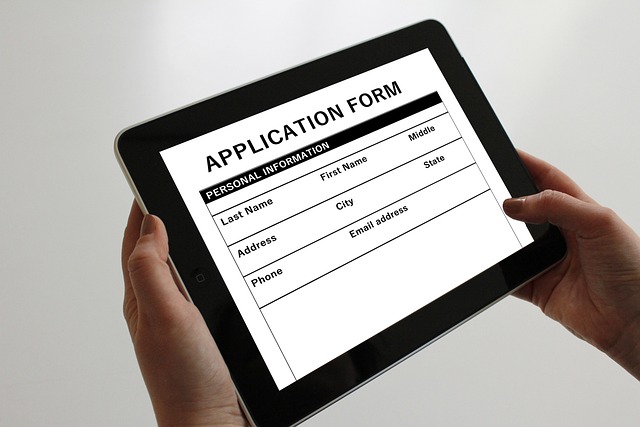Social Security Benefits for Veterans

Did you know that military members can get both military retirement benefits and draw Social Security? Since 1957, military members on active duty have enjoyed Social Security coverage. Those who served before then did not pay into Social Security but did get credit for some military duty.
SSI Versus SSDI: What to Know
According to the federal government, SSI, or Social Security Income, “…is a needs-based program, additional income from VA benefits will affect the cash benefit amount.” If you apply for SSI, your VA benefits are reduced “dollar for dollar from the SSI federal payment amount, after a general exclusion of $20. All SSI recipients are eligible for this exclusion, where the first $20 of earned or unearned income is not counted against their SSI payment.”
SSDI (Social Security Disability Income) benefits are not affected by “unearned income,” such as VA benefits.
Social Security and the Military: How it Works
Military members pay into Social Security the same way civilian employees do. According to the Social Security official site, the current rate is 6.2% in Social Security taxes for wages, including military basic pay up to $160,200. A Medicare tax is levied on 1.45% of all wages.
American workers, including military members, must earn Social Security “credits” by paying taxes on their wages. How many credits are required to qualify? In general, this may vary, but in 2023, “you receive one credit for each $1,640 of earnings, up to the maximum of 4 credits per year.”
According to the Social Security official site, SSA.gov, no employee needs more than ten years of work, or 40 credits, to qualify for Social Security.
Furthermore, veterans may be eligible for Social Security programs which can help “expedite disability decisions” including:
100% Permanent and Total Veterans Initiative: In 2014, SSA introduced expedited processing of applications from those 100% Permanent and Total (P&T) disability ratings from the VA. To take advantage of this help for SSA applications, identify as a “Veteran rated 100% P&T” on all SSI/SSDI applications. You should also send a VA rating notification letter in with your SSI or SSDI application.
Wounded Warriors with “disabling mental or physical health injuries while on active duty on or after October 1,
2001″ can apply for expedited SSI/SSDI application processing. Be sure to indicate on SSA forms that your condition happened on active duty.
When To Apply For Social Security as a Veteran
Under SSA rules, you can apply for Social Security as young as 62. But those who do so have their benefits “permanently reduced” under the law.
You are subject to income caps when retiring at 62; exceeding those caps may result in further limits on your benefit amounts. Those limits are subject to change year over year.
SSA.gov reminds us, “If some of your retirement benefits were withheld due to your earnings, we will recalculate your benefit amount to give you credit for the months we reduced or withheld benefits due to your excess earnings.”
Social Security Retirement Age
To qualify for the full benefit, you must retire on or after age 66 if you were born between 1943 and 1954. After 1954, the SSA retirement age increases over time until 1960. Those born after 1960 must retire on or after age 67.
Read more: Military Retirement Saving and Investment Options
Social Security and Members of the Guard/Reserve
In the same way that military pay charts look different for active duty members than for members of the Guard and Reserve (active duty service members don’t draw Drill Pay, for example), some different rules apply to members of the Reserve and National Guard.
SSA.gov says, “Under certain circumstances, special earnings can be credited to your military pay record for Social Security purposes.”
These earnings apply when the Guard or Reserve member is on active duty or on active duty for training purposes. Paying Social Security taxes on these earnings may qualify you for an increased SSA benefit.
Can I Collect Military Retirement Pay and Social Security Benefits?
The Social Security official site says, “You can get both Social Security benefits and military retirement benefits. Generally, there is no reduction of Social Security benefits because of your military retirement benefits.”
Those in uniform qualify for Social Security the same way civilian employees do; the Social Security benefit is calculated on your earnings and the age you claim your benefits.
There are other ways certain “special extra earnings” may also contribute toward your SSA benefits; Pay for active duty from 1957 through 2001 can also be credited if you were on active duty:
- From 1957 through 1967. SSA.gov says, “We will add the extra credits to your record when you apply for Social Security benefits.
- If you were on active duty from 1957 through 1977, you may qualify for $300 in additional earnings for each quarter you received active duty basic pay.
- Those on active duty from 1978 through 2001 may be credited $100 for every $300 in active duty basic pay up to a cap of $1200 a year.
- From 1968 through 2001. These SSA credits are automatically added to your records.
- After 2001, there are no extra earnings credits for military service.
For all of the above, the additional earnings are credited to the amount averaged over a “working lifetime.”
Read more: Military Retirement Pay Explained
Benefits For Surviving Spouses and Expedited Claims for Disabled Veterans
SSA.gov pays benefits to surviving spouses when a Social Security recipient dies. Army.mil notes, that the amount of SSA death benefits may “depend on the Family status of the deceased. ”
The amount also “depends on the total work experience of the deceased and the amount of Federal Insurance Contributions Act (FICA) tax contributions made during that period.”
SSA.gov rules state, “Permanently reduced amounts” may be paid to surviving spouses at age 60 or older. There are surviving children benefits as well as surviving spouse benefits from the SSA. Benefits are offered to the following:
- Surviving spouses caring for the service member’s dependent Children under age 16.
- Surviving spouse ages 60 or older.
- Disabled surviving spouses age 50 or older.
- Children age 18 or under.
- Children up to age 19 if attending elementary or secondary school full time.
- Children at any age who were disabled before age 22 and remain disabled.
- Dependent parents age 62 or older.
If you became disabled while on active duty on or after 1 October 2001, you may qualify for expedited processing of your SSA claim.
Applying for Social Security As A Military Member
At application time for any military benefit, you are asked to provide proof of service. It’s the same when applying for your Social Security benefits as a military member. You’ll need a DD Form 214 (Report of Military Discharge) or it’s equivalent for Guard/Reserve military duty.
When applying for Social Security, know that your options under TRICARE, CHAMPVA, and Medicare may change. Will drawing one benefit affect the others? You’ll need to learn how your current retirement, disability retirement, Social Security, and Medicare affect one another depending on which you qualify for and which you actually use.
What To Know About Social Security Benefits
Social Security is not automatic; you must apply for your benefits. You’ll need a government ID that matches your records; if you have had a name change, you should update all federal records and ID cards as soon as possible to avoid complications with your benefits later.
Do you have student loan debt, back taxes, or back child support? These debts can result in garnishments to Social Security payments under the right circumstances. Make sure you settle such outstanding debt before it’s time to start collecting your benefits.
Read more: Blended Military Retirement System: An Overview
About the author
Editor-in-Chief Joe Wallace is a 13-year veteran of the United States Air Force and a former reporter/editor for Air Force Television News and the Pentagon Channel. His freelance work includes contract work for Motorola, VALoans.com, and Credit Karma. He is co-founder of Dim Art House in Springfield, Illinois, and spends his non-writing time as an abstract painter, independent publisher, and occasional filmmaker.


